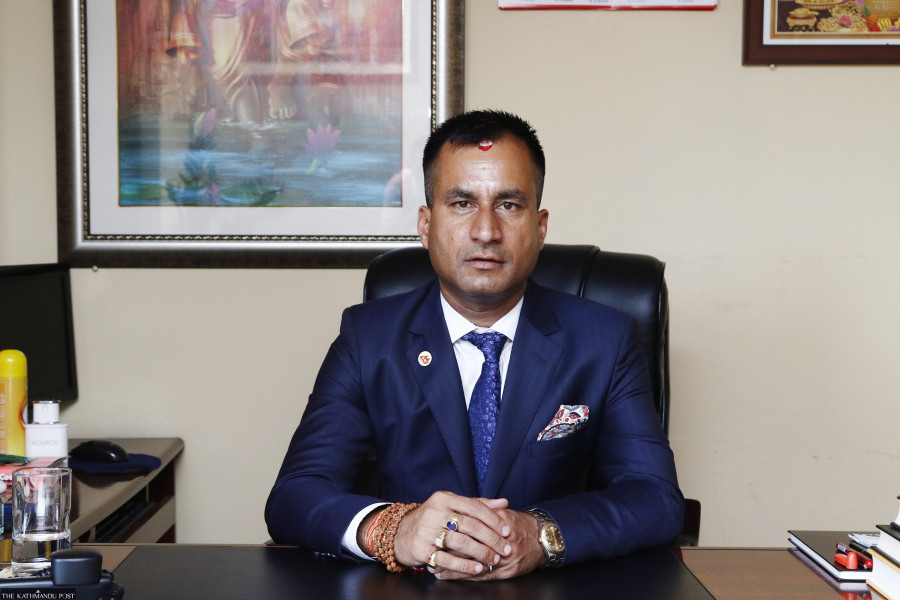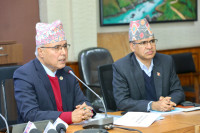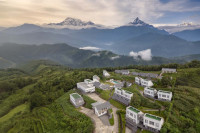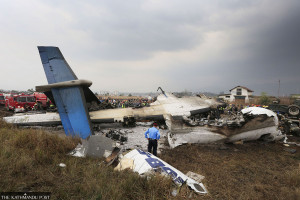Money
'We are currently in negotiation with many global brands'
RP Group Chairman and Managing Director Rupesh Pandey talks about raising brand consciousness among Nepali consumers.
Krishana Prasain
Starting from Jay Ambe Saree Showroom at Indrachowk in 2011, the RP Group is now the authorised supplier of 23 international brands of clothing, footwear and accessories like Da Milano Italia, Rosso Brunello, W Aurelia, Indian Terrain and Louise Philippe, among others. The group also has interests in electronics and food items. In an email interview with the Post, RP Group Chairman and Managing Director Rupesh Pandey talked about raising brand consciousness among Nepali consumers. Pandey plans to introduce other international brands in the near future, and predicts that demand for global products will increase immensely. Excerpts:
How hard was the pandemic?
The pandemic has obviously affected the whole world, and even the developed and rich nations are battling to fight the coronavirus. Nepal too has been affected with a slowdown in economic activities. As the country is still going through the pandemic phase, with new variants emerging and lockdowns imposed to control them, our businesses also went dry because people's incomes fell and they were also not in a buying mood. As the disease was highly transmissible, people were focused on health safety; and as a result, sales declined. The strict lockdown that was imposed last year has been continued this year too, with almost insignificant support to the businesses that have been impacted by the deadly Covid-19 pandemic.
Demand for luxury apparels and accessories was booming in Nepal before the pandemic. Premium brands have taken a big hit. Will they rebound? If so, when?
Before making any statement, things need to be seen on a larger canvas. Boom and bust are inherent attributes of a healthy market, and that's why sharp minds came up with an innovation called branding. The "identity attached products" do not really feel boom or bust due to an exclusive devout following. Provided the government ensures a market-going safe environment during lockdowns, loyal customers will not drift away. A rebound in luxury items does not get affected by the national economic condition as consumers stay afloat even when the economy is drowning.
High-end consumers have been increasingly impacted by the Covid economic fallout. What will be its impact on the luxury market or premium brand sales?
High-end consumers do not get impacted easily by any economic fallout. Moreover, the rich in poor countries are far above the average to be impacted by some minor economic moves, especially in luxury consumer items. Talking about prospects, everything depends upon mainly two things. First, how many global high-end brands can be imported? This is critical because those who can afford these goods prefer to purchase them from duty-free shops abroad as many brands are not available in our city. Second, consumers wish to make sure that the products available in Nepal are genuine. An assurance of availability of original products will dissuade them from paying more in greenbacks abroad. Unfortunately, even authorised resellers sometimes mix inferior goods for short-term higher gains. Such horrendous acts need to be curtailed. If done as said above, the prospect of high-end products is encouraging.
Lots of brands are depending on China more than the United States and Europe. What’s your focus?
A brand is associated with trust, prestige, status, loyalty and long association. Celebrated producers have invested skill, passion, ages of perfection, understanding of products and deep association with their clients for generations. So, the brands that have made a niche for themselves will not be easily wiped out. The production base, however, is immaterial for consumers—it could be Vietnam, China, Mexico or anywhere. If you are talking about new brands coming out of China and other new economic superpowers, it will take some time, efforts, investments and devotion for them to be counted as global brands. In apparels and clothing, no new technology can really sweep the market, which is unlike the automobile industry where a relatively new name called Tesla is turning the market topsy-turvy.
There has been an online shopping spree as people were ordered to stay at home. Do you have plans to make products available through e-commerce platforms?
Rest assured, the innumerable entries into the e-commerce market has ruined it so badly that people will hardly continue judging the quality of clothes or leather on their mobile screens. However, surprisingly, the online market for branded products will not be impacted that badly because those who know the brand know the quality they are asking for, and they are also assured of getting their wants. Meaning, high-end customers may not need to worry about the quality of the products they are ordering, so they will be more attuned to online shopping. Those who go for cheap goods are hoodwinked easily, so they will prefer to examine their purchase physically. It is not yet known when we will be placed in the global inventory, hence we will be delivering items purchased online from Nepal. If high-end brands show enough trust in some local online shops, it will be easier for us. But that has not happened yet for the brands the RP Group represents.
How do you see the domestic fashion industry now? What types of clothing or footwear brands do Nepali customers specially look for?
We haven't moved up to the level of assuming our market as a fashion industry. There is no unique choice of Kathmanduites, not to mention other cities, that would push or pull the designing and production of global brands. Our markets are supplied with the items popular in the region, especially in the Indian market. A surge in demand for quality goods will be attained if we work harder to bring more reputed brands, and instil confidence in locals and international guests about their originality. Though Nepali fashion demand does not really have a significant impact, the trend in local fashion can still be observed and critically acclaimed. At the moment, Nepali youths are swayed towards South Korean fashion, thanks to their soap operas that are attracting quite a number of youths.
Second-hand branded apparels have been gaining attention in many countries in the retail market. Is there any market in Nepal?
Do not presume so. Counterfeit cheap first-hand clothing and apparels are abundantly available. This kind of situation will crop up only when brand awareness rises to a higher level and counterfeit goods are denied access to the market.
In your view, are domestic buyers brand conscious or price conscious?
It requires segregation of customers. When talking about consumers of high-end brands, there are mainly two types—upper middle class and higher class. Upper middle class people want the best at an affordable price. They spend days window-shopping or scrolling online shops before zeroing in on their decision. These people are larger in number, so they promote price competition. The other group will not be price conscious. They will be more fashion conscious, and they are more concerned about the availability of their choices when they are hip in the international fashion world.
Do you have any plans to bring in other international clothing or footwear brands in the Nepali market?
The RP Group always strives to bring products that provide good value for money to our consumers. We are currently in negotiation with many global brands, and some of them might materialise soon. We are making serious efforts to bring quality in our society, also beyond apparels and clothing. Very soon the RP Group will make some eye-twinkling announcements.




 9.12°C Kathmandu
9.12°C Kathmandu















